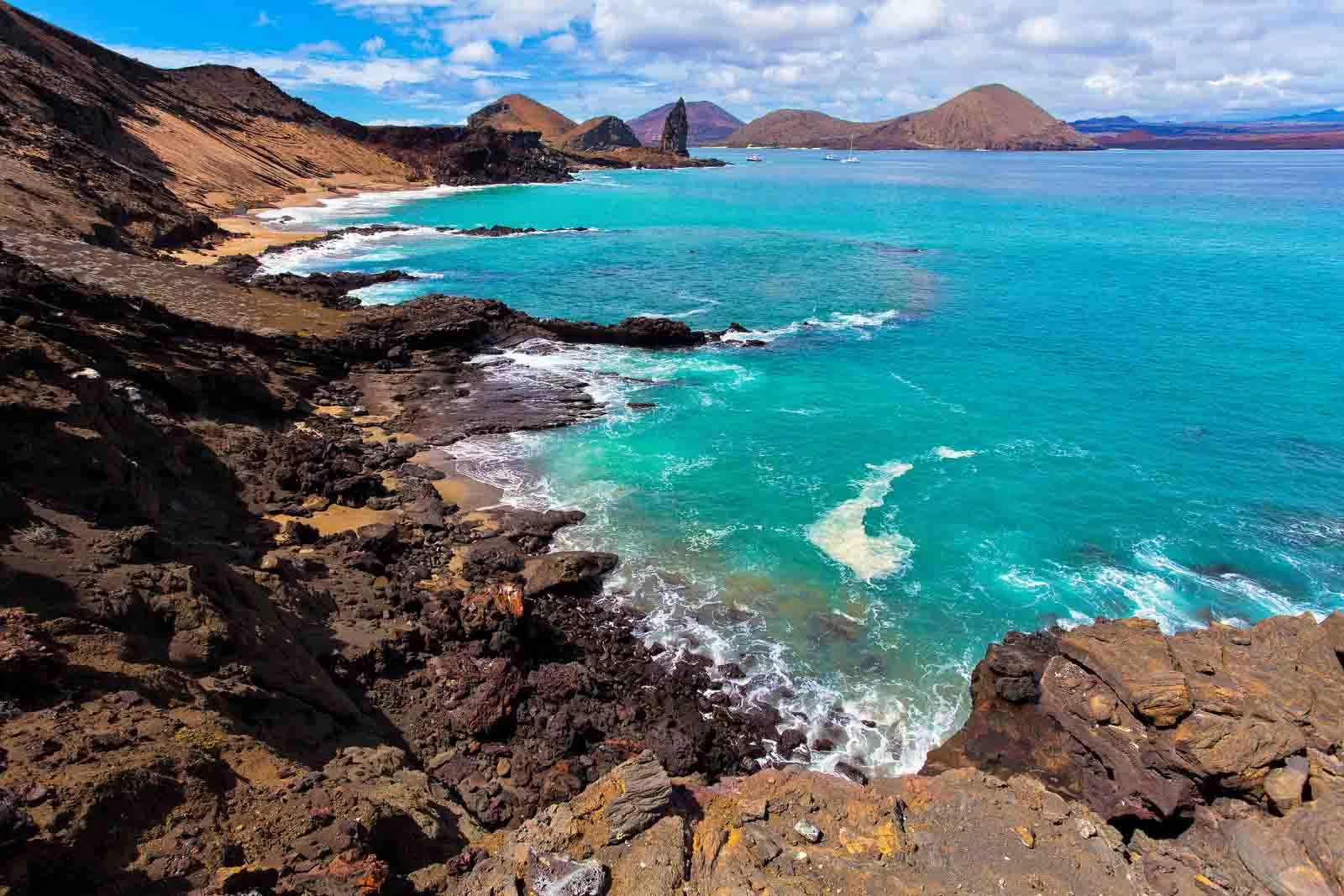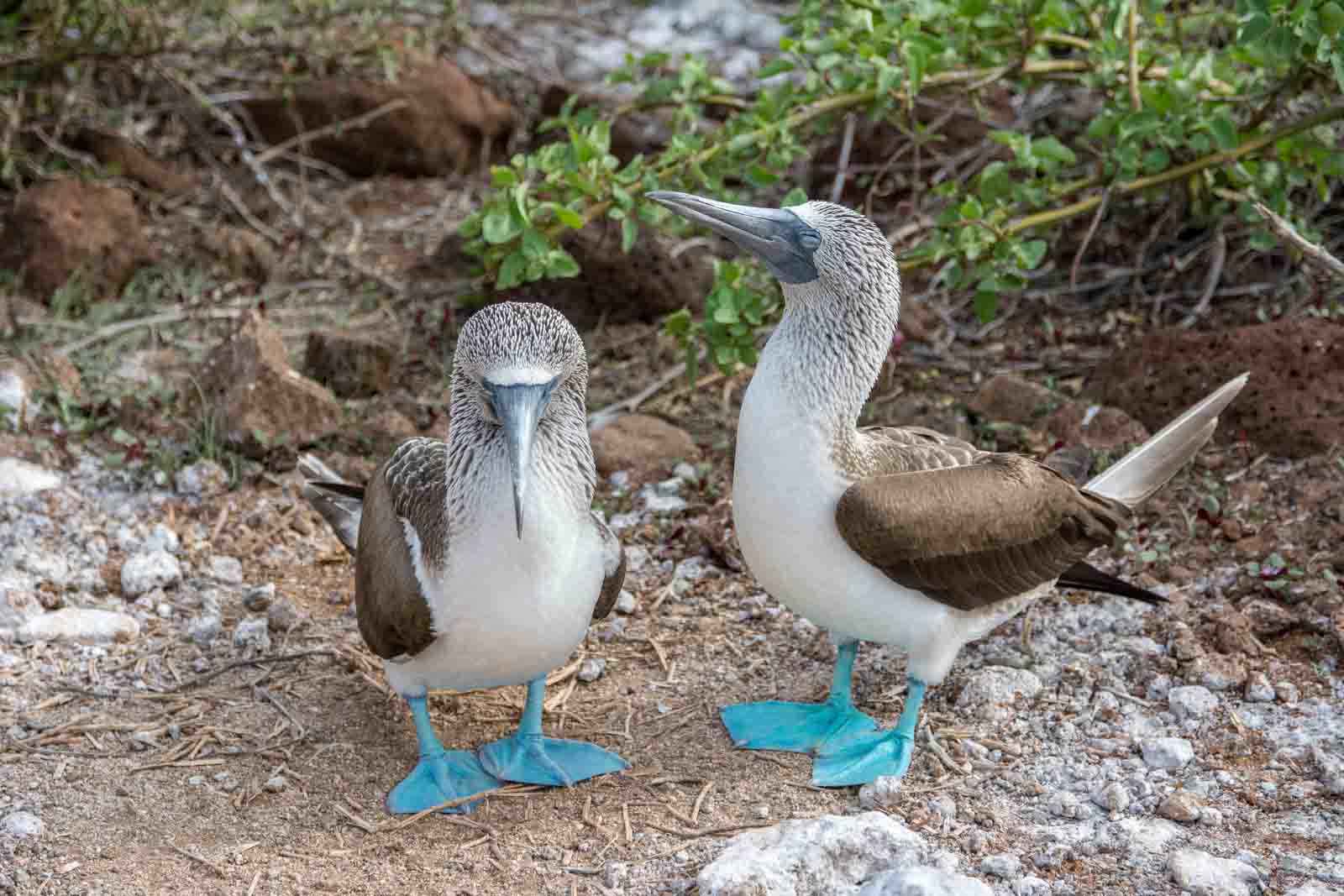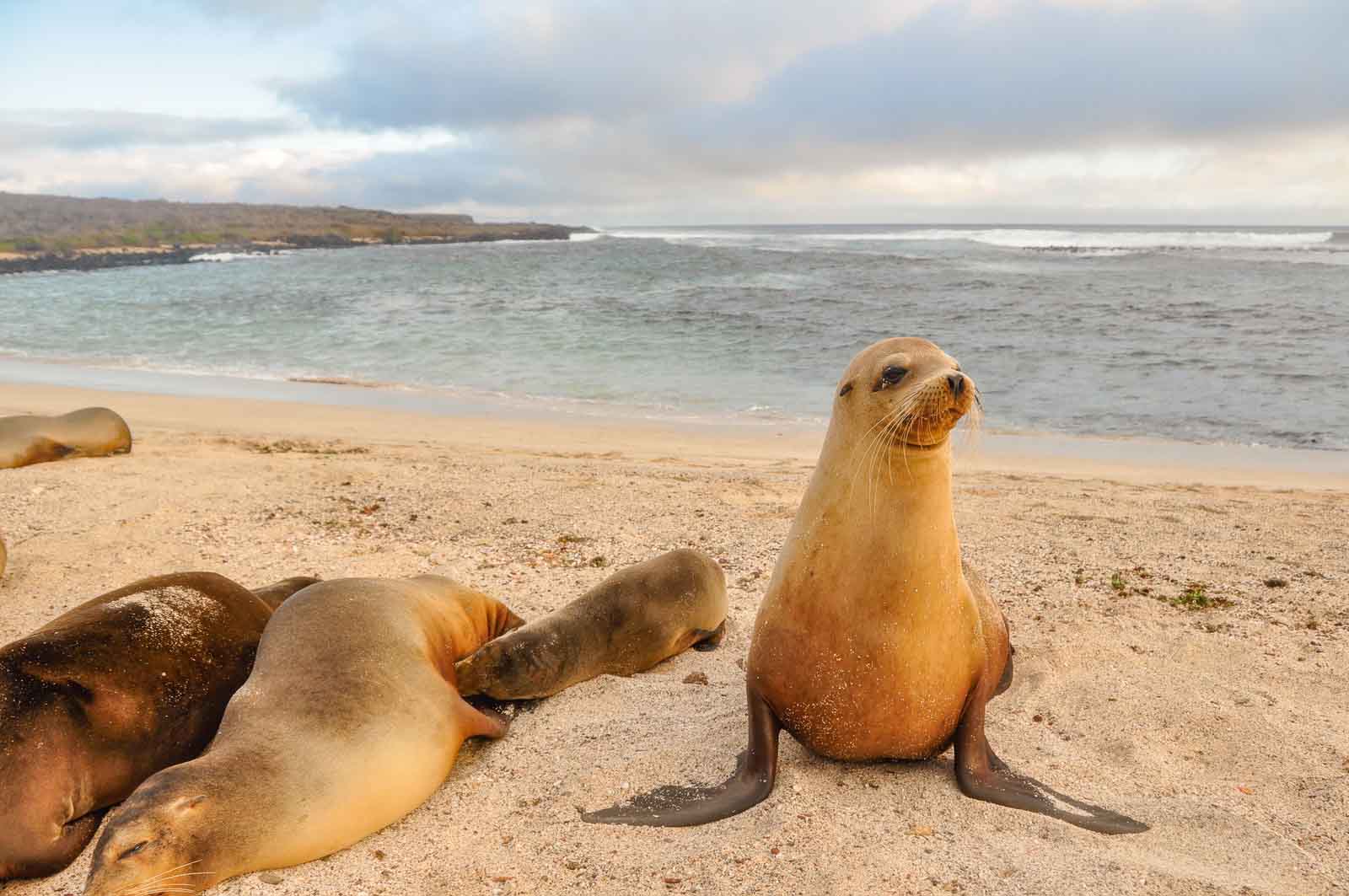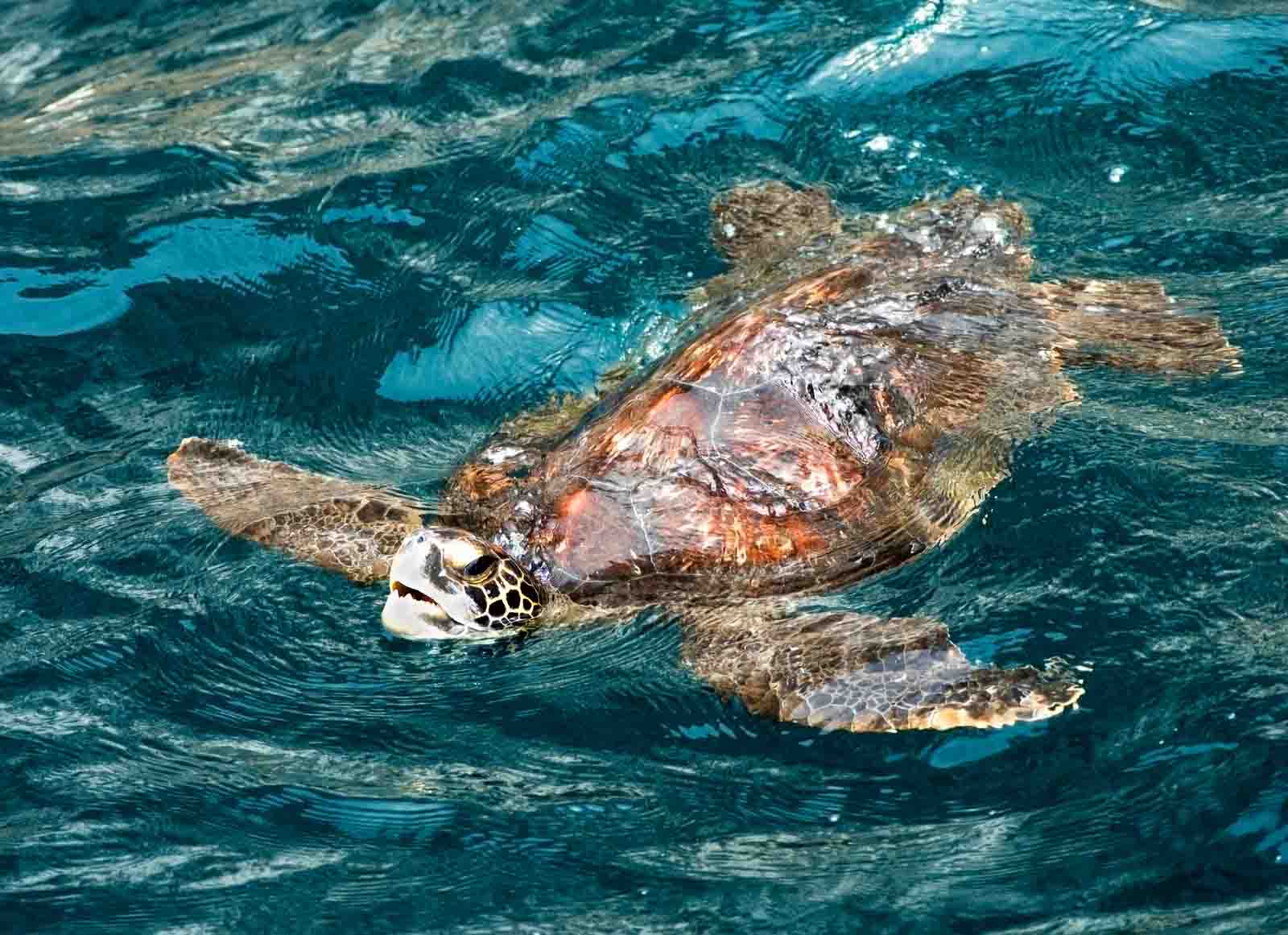
10 Reasons Why Galapagos Islands Are Special | Travel Blog
Why Galapagos islands are special?
The Galapagos Islands, a remote and pristine archipelago located in the Pacific Ocean, have earned their reputation as a special and unique destination.
Many travelers often wonder why visit the Galapagos Islands and what makes them so different from other places on Earth. These remarkable islands are more than just a tourist attraction; they are a testament to the wonders of nature and the importance of conservation. In this article, we'll explore ten compelling reasons why the Galapagos Islands are truly special.
Table of content
- Birthplace of evolution
- Iconic giant tortoises
- Blue-footed boobies
- Unique wildlife encounters
- Pristine marine environments
- Conservation success
- UNESCO world heritage site
- Volcanic landscapes
- Unique island ecosystems
- Commitment to sustainable tourism
Why are the Galapagos Islands considered special?
What is the significance of Charles Darwin's visit to the Galapagos Islands?
What are some iconic species that make the Galapagos Islands special?
How have conservation efforts contributed to the Galapagos Islands' special status?
Can visitors actively participate in conservation efforts in the Galapagos Islands?
1. Birthplace of evolution
The Galapagos Islands are the living laboratory where Charles Darwin's groundbreaking theory of evolution was conceived. Darwin's observations of the islands' unique species and their adaptations were pivotal in the development of his theory of evolution by natural selection.
Today, visitors can follow in his footsteps, gaining a deeper appreciation for the islands' profound role in the history of science.
2. Iconic giant tortoises
Giant tortoises are the Galapagos' most iconic inhabitants. These gentle giants can live for over a century, embodying the islands' unhurried pace of life.
Observing these magnificent creatures in their natural habitat is a poignant reminder of the archipelago's rich biodiversity.

3. Blue-footed boobies
The comical courtship rituals of blue-footed boobies are a sight to behold. During mating dances, these seabirds lift their vibrant blue feet in a synchronized performance that captivates onlookers.
It's a testament to the unique behaviors that have evolved in the Galapagos.

4. Unique wildlife encounters
In the Galapagos, wildlife reigns supreme. Animals here display little fear of humans, allowing for incredibly close encounters. Imagine snorkeling alongside a curious sea lion or sharing a hiking trail with a marine iguana.
These experiences are part of the magic that answers the question: why visit Galapagos Islands at least once in a lifetime.

5. Pristine marine environments
Beneath the crystal-clear waters surrounding the Galapagos Islands lies a world of wonder. Vibrant coral reefs teem with marine life, and it's not uncommon to swim with playful sea lions, graceful sea turtles, and schools of colorful fish.
For divers and snorkelers, the Galapagos is a bucket-list destination.

6. Conservation success
The Galapagos Islands are a shining example of successful conservation efforts. Thanks to stringent regulations and ongoing initiatives, endangered species like the Galapagos giant tortoise have made remarkable comebacks.
The islands' commitment to preserving their unique ecosystems is a testament to their special status.
7. UNESCO world heritage site
Designated as a UNESCO World Heritage Site, the Galapagos Islands are recognized on a global scale for their ecological significance.
This prestigious status underscores the islands' importance as a living laboratory for the study of biodiversity and evolution.
8. Volcanic landscapes
The Galapagos' volcanic landscapes transport visitors to another world.
From the surreal lava tunnels of Santa Cruz to the dramatic calderas of Isabela, these geological wonders provide a captivating backdrop for exploration and photography.

9. Unique island ecosystems
Each Galapagos island is a microcosm of biodiversity, with its own distinct ecosystem.
Whether you're hiking through the lush highlands of Santa Cruz or wandering the arid terrain of Española, you'll encounter a remarkable array of flora and fauna, making island-hopping a special adventure.
10. Commitment to sustainable tourism
The Galapagos Islands are committed to sustainable tourism practices. Strict visitor guidelines, such as group size limits and designated trails, ensure that the delicate balance of the ecosystem is maintained.
Visitors play a crucial role in preserving the Galapagos' special character for generations to come.
Frequently asked questions
Why are the Galapagos Islands considered special?
The Galapagos Islands are considered truly special because of their extraordinary combination of factors. Firstly, they are renowned for their unique biodiversity, featuring species that can't be found anywhere else on Earth. This includes giant tortoises, marine iguanas, blue-footed boobies, and many more. These creatures have evolved in isolation, adapting to their specific island environments, making the Galapagos a living testament to the power of evolution.
Secondly, the Galapagos Islands hold a pivotal place in the history of science and our understanding of life on Earth. Charles Darwin's visit to the islands in 1835 inspired his theory of evolution by natural selection. His observations of the distinct species and their adaptations to their environments provided crucial evidence for his groundbreaking work, "On the Origin of Species." Thus, the Galapagos are often referred to as the "birthplace of evolution," adding to their special significance.
What is the significance of Charles Darwin's visit to the Galapagos Islands?
Charles Darwin's visit to the Galapagos Islands in 1835 was a transformative moment in the history of science. His observations of the islands' unique species and their adaptations had a profound influence on the development of his theory of evolution by natural selection. While on the islands, he noted variations among finches, tortoises, and other wildlife from one island to another.
These observations led him to propose that species could change over time through a process of natural selection. His groundbreaking work, "On the Origin of Species," published years later, revolutionized our understanding of life on Earth and laid the foundation for modern biology.
What are some iconic species that make the Galapagos Islands special?
The Galapagos Islands are home to a remarkable array of iconic species that contribute to their special status. Giant tortoises, the largest tortoises on the planet, are a symbol of the Galapagos. Each island has its distinct species of giant tortoise, showcasing the archipelago's unique biodiversity.
Additionally, blue-footed boobies, known for their comical courtship dances and vibrant blue feet, are a favorite among visitors and photographers. Marine iguanas, the only seafaring iguanas in the world, and Galapagos penguins, the northernmost penguin species, also add to the islands' charm and uniqueness.
How have conservation efforts contributed to the Galapagos Islands' special status?
Conservation efforts have played a pivotal role in preserving the Galapagos Islands' special ecosystems and biodiversity. Over the years, the islands have faced various threats, including habitat degradation and introduced species. To combat these challenges, the Galapagos National Park, in collaboration with local and international organizations, has implemented strict conservation measures.
These include the eradication of invasive species, the establishment of protected areas, and the enforcement of visitor guidelines to minimize ecological impact. As a result, endangered species like the Galapagos giant tortoise have made remarkable comebacks, and the islands serve as a global model for successful conservation.
Can visitors actively participate in conservation efforts in the Galapagos Islands?
Yes, visitors to the Galapagos Islands can actively engage in conservation efforts. One way to contribute is by strictly adhering to eco-friendly practices, such as staying on designated trails, not disturbing wildlife, and properly disposing of waste. Additionally, supporting local initiatives and organizations that work towards the preservation of the islands' unique ecosystems is highly encouraged.
Some tour operators also offer educational programs and experiences that highlight the importance of conservation, allowing visitors to gain a deeper appreciation for the Galapagos' special natural heritage.
Conclusion
The Galapagos Islands are special in countless ways, from their role in scientific discovery to their extraordinary wildlife and pristine environments.
A visit to the Galapagos is not just a vacation; it's an opportunity to witness nature's wonders and be part of a conservation success story.
These islands serve as a reminder of the importance of preserving our planet's unique ecosystems and inspire all who are fortunate enough to experience their special charm.
Check Our Suggested Tours:
- Bucketlist Galápagos
- Galapagos Southern Islands 6 days cruise Itinerary on board Ocean Spray
- San Cristobal, Española & Santa Cruz Islands short cruise Horizon
- Itinerary F Endemic Cruise
- Galapagos 8 day southern islands cruise on board the Endemic
- 8 Day Galapagos Islands Cruise: Unforgettable Wildlife and Pristine Beaches Explored
Check Our Galapagos Cruises:




